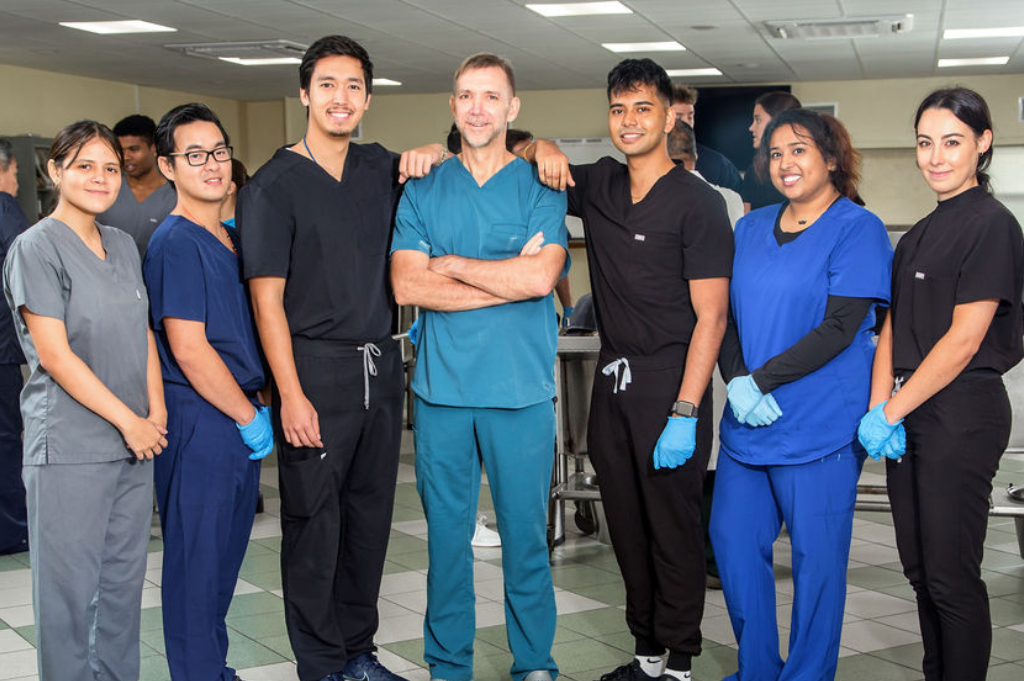
All You Need to Know About Residency Match
Learn more about residency Match Day and why it is important for medical students and their future.
Last updated: March 5, 2025
Residency training marks a pivotal phase in the journey of every medical student. It’s a hands-on period when aspiring doctors train in specific medical specialties, gaining invaluable experience and expertise.
However, with the number of medical school graduates surpassing available residency positions, understanding and effectively navigating “The Match” process becomes especially important.
The better prepared you are for this process, the greater your chances of securing a coveted residency spot when medical school residency Match Day comes around.
What is Match Day?
For U.S. residency programs, positions are allocated to eligible medical graduates through a centralized system called the “The Match.” This system, managed by the National Resident Matching Program (NRMP), pairs candidates with programs based on a rank-order list. Originating in 1952, Match Day is the culmination of this process, eagerly anticipated by medical graduates nationwide. Falling on the third Friday of March each year, it’s the day when NRMP officially announces residency placements.
The Match Day Process
The Match Day journey begins in September, when medical students submit their applications via the Electronic Residency Application Service (ERAS). Required materials include a completed ERAS application, personal statement, letters of recommendation and licensing exam transcripts. International medical graduates must also provide additional documentation.
Following submission, the interview phase unfolds between October and February, during which medical institutions assess applicants. A Ranked Order List (ROL) is then created, allowing students to prioritize residency programs based on preference. This list, which must be finalized by February, forms the basis for NRMP’s optimization algorithm, ensuring an applicant-centric matching process.



Tips For a Successful Residency Match
The Match is an intensive process that requires a great deal of preparation and determination. Below, we’ve outlined some key things to think about and do in order to be successful.
Give Yourself Time
The residency application process is rigorous, so start early to ensure you meet every requirement without last-minute stress. Dedicate time to crafting a strong personal statement that highlights your passion and suitability for your chosen specialty. Secure compelling letters of recommendation from mentors who know you well, and be fully prepared for interviews to make a lasting impression on program directors.
Think About the Rank List
Your rank order list should reflect not just prestige but also where you will thrive both professionally and personally. Consider factors like hospital culture, work-life balance and opportunities for mentorship and career growth. Ranking programs strategically based on your true preferences – not just perceived competitiveness – can make a significant difference in your future success and happiness.
Don’t stress If You Are Unmatched
If you don’t match, remember that you still have pathways to secure a residency position.
On the Monday before Match Day, medical students find out if they have matched into a residency program. Then from Tuesday to Thursday of that week, the Supplemental Offer and Acceptance Program (SOAP) runs, which provides opportunities to apply and interview for unfilled spots. So stay proactive and adaptable all the way through the entire process.
Additionally, if you remain unmatched, consider options like research fellowships or additional clinical experience to strengthen your application for the next cycle.
Match Week Schedule 2025
Match Week for the 2025 Main Residency Match is scheduled from March 17 to March 21, 2025. Here’s a breakdown of Match Week 2025’s key events:
- Monday, March 17, 2025
- 9:30 a.m. ET: Medical school officials receive the Unmatched Applicants report (embargoed until 10:00 a.m. ET).
- 10:00 a.m. ET: Applicants learn if they have matched via email and the NRMP’s Registration, Ranking and Results® (R3®) system. SOAP-eligible unmatched applicants gain access to the List of Unfilled Programs in the R3 system.
- 11:00 a.m. ET: SOAP-eligible applicants can begin preparing applications in the designated application service.
- Tuesday, March 18, 2025
- 8:00 a.m. ET: Programs start reviewing SOAP applications and may contact applicants to schedule interviews.
- 11:30 a.m. ET: Programs can begin creating SOAP preference lists in the R3 system.
- Wednesday, March 19, 2025
- Programs continue reviewing applications, conducting interviews and finalizing their SOAP preference lists.
- Thursday, March 20, 2025
- 8:00 a.m. ET: Confidential Advance Data Tables become available to medical schools, programs and institutions in the R3 system.
- 9:00 a.m. ET: SOAP rounds commence, offering positions to unmatched applicants.
- Friday, March 21, 2025 – Match Day 2025
- 12:00 p.m. ET: Match results are released to all applicants, revealing their residency placements.
For a detailed overview, refer to the NRMP’s 2025 Match Week and SOAP Schedule.
How to Prepare for Match Day
Securing a Match Day residency is a significant milestone in your medical career. Here’s how to prepare effectively:
1. Understand the Process
Familiarise yourself with the NRMP timeline and key deadlines to ensure you stay on track. Research programs thoroughly, considering factors like location, work-life balance and career goals.
2. Perfect Your Application
Start early by securing strong letters of recommendation, crafting a compelling personal statement and preparing for interviews. A well-prepared application increases your chances of matching successfully.
3. Rank Thoughtfully
Your rank order list should reflect where you’ll thrive both professionally and personally. Choose programs based on fit rather than just prestige to ensure a fulfilling experience.
4. Plan for the Transition
If matched, be ready for relocation by researching housing options and living costs in your new city. If unmatched, explore alternative pathways like SOAP or research fellowships.
5. Stay Balanced
The lead-up to Match Day can be stressful, so prioritise your well-being. Engage in activities that keep you focused and maintain a support system to navigate the process with confidence.
Conclusion
At Saba University School of Medicine (SUSOM), we’re proud to support our MD program students throughout the residency process, from preparing applications, to conducting mock interviews, to guiding them through Match week.
Thanks to their own dedication and SUSOM’s support services, our students regularly secure residency placements. In fact, they have achieved a 97% average residency placement rate over the last four years (2020-2024)!*
To learn more about our educational environment, which provides individualized support from the first day in Basic Science through residency application preparation, view this testimonial video from an MD program graduate in residency:
FAQs About Match Day
On Match Day, medical students find out where they will undertake their specialized residency training. Match results are released at 12 p.m. ET, and students receive an envelope or email with their assigned program. It’s a celebratory event, often shared with classmates, family and faculty.
No, Match Day is a major milestone, but students usually still have to complete a few months of coursework and clinical rotations before graduation. After Match Day, they focus on completing their final requirements and preparing for residency. Graduation, usually marked by a commencement ceremony, is the official end of medical school for graduates.
If a student doesn’t match, they can enter the Supplemental Offer and Acceptance Program (SOAP) to secure an unfilled residency position. If they remain unmatched, they may explore research opportunities or additional clinical experience in order to bolster an application for the following Match cycle. Advisors and mentors can help students navigate their next steps.
Match Day greatly influences a medical student’s future career by assigning them to a residency program where they will focus on a specific medical specialty. It marks the transition from student to doctor, making it an emotional and defining moment. The event is celebrated nationwide, symbolising years of hard work and dedication.
*Four Year Residency Placement Rate is the percentage of students attaining a residency position out of all graduates or expected graduates in 2020-21, 2021-22, 2022-23, and 2023-24 who were active applicants in the NRMP match or attained a residency outside the NRMP match.